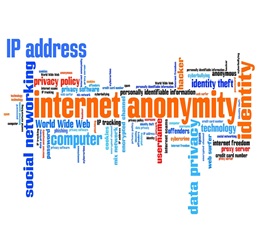Netflix Cracks down on VPNs

Early this year, Netflix began blocking subscribers who use a proxy network to bypass the streaming service’s regional settings. Although, officially, they never let subscribers use proxies or “unblockers” to watch content only available in another country, this is the first time Netflix has effectively and, seemingly, permanently blocked access by proxy. When Netflix purchases the distribution rights to video content from studios like ABC or Warner Brothers, it must agree to strict distribution requirements. These requirements include postponing the Netflix release date until well after the content has made its rounds in theaters and on network television and only releasing the content to preapproved regions of the world.

A proxy network is a virtual private network (VPN) that users can connect to remotely from anywhere in the world. Because all proxy users appear to be connecting to the internet in whatever country the proxy is based, people use it to bypass internet censorship in countries like China or to, you guessed it, watch Netflix content not available in their country.

Since passively allowing proxy access gave their subscribers more content to choose from, the recent ban is a loss for the service. In a letter posted on the Netflix blog, Netflix executive David Fullagar all but apologizes for the proxy ban. “We are making progress in licensing content across the world and, as of last week, now offer the streaming service in 190 countries, but we have a ways to go before we can offer people the same films and TV series everywhere,” he writes. “Over time, we anticipate being able to do so. For now, given the historic practice of licensing content by geographic territories, the TV shows and movies we offer differ, to varying degrees, by territory. In the meantime, we will continue to respect and enforce content licensing by geographic location.”
The blog confirms what many have guessed, that Netflix bowed to pressure from studios to close the proxy loophole that let subscribers watch content that Netflix wasn’t licensed to show them. The ban is the latest development in the content rights saga between production studios and streaming services like Netflix, Hulu, and Amazon Video. On demand video streaming is a more efficient way to distribute content to people than theaters or network television ever were.

Studios, afraid they’ll lose money by selling content rights to highly efficient distributors, are clinging to distribution requirements that help keep money in the studios, but ultimately shackle streaming services and consumers to outdated modes. Netflix, in particular, has been butting heads with studios a lot lately. In late 2015, EPIX, the network that brought Transformers and The Hunger Games to Netflix, left the video streaming service to strike up a deal with rival Hulu. It was the end of a five-year long partnership between Netflix and the EPIX network.
In a post on the Netflix blog, executive Ted Sarandos detailed frustration with the 90-day waiting period between theater release and their release of EPIX titles. During those 90 days, movies would make the rounds in theaters and on the network’s pay TV. This meant EPIX, not its online distribution partners, profited from the excitement around its new releases.

Acknowledging that the current legal framework privileges studios over streaming services, Netflix has begun shifting its resources away from acquiring content rights and towards producing its own original content. The success of Netflix originals like House of Cards, Orange Is the New Black, and Master of None indicate the streaming service’s new strategy might pay off in a way negotiating digital sales with other networks no longer does.





